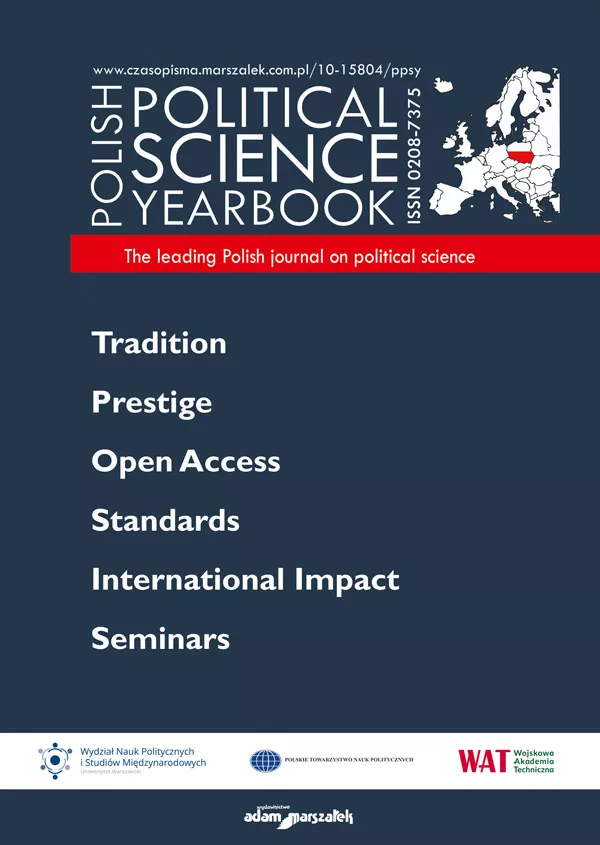Managing Emotions During Social Protests and the Political Subjectivity of the Protesters
Managing Emotions During Social Protests and the Political Subjectivity of the Protesters
Author(s): Roman BäckerSubject(s): Politics / Political Sciences, Politics and law
Published by: Wydawnictwo Adam Marszałek
Summary/Abstract: In June 1956, the technique of masking emotion management was used effectively. On the other hand, the intensification technique in October of the same year was fully effective. In December 1970, the masking technique proved to be completely ineffective and only the use of the intensification technique brought results. In June 1976, the masking technique proved to be effective within a limited time range. On the other hand, in the summer of 1980 and the following months of the existence of the legal “Solidarity”, the party-state apparatus was not able to effectively manage emotions. The breakthrough was the introduction of the martial law and forcing a significant part of society to be submissive and conformist. The use of the masking technique against Solidarity activists was only effective for a short time. On the other hand, the techniques of managing emotions during the kidnapping of Father Popiełuszko were completely ineffective. The technique of masking, contrary to a hypothetical assumption, was not the only one used by the leadership of the ruling party. In October 1956 and from December 1970, the intensification technique was used by Gierek’s team. They were effective, but at the same time associated with the need to make concessions mainly of an economic nature to the population. The correlation between the level of subjectivity of protesters or opposition social groups and the effectiveness of the management of emotions by the leadership of the party-state apparatus is clearly visible. The greater the level of objectification of the protesters, the more effective the management of emotions. Crossing the threshold of subjectivity by opposition social groups makes the management of emotions generally ineffective. The crowd’s emotions can be manipulated, and it is impossible to control from the outside the emotions of organised social groups that can act less or more rationally and teleologically. Furthermore, the cases of the emergence of a mass conspiracy after the martial law period and the social reaction to the kidnapping and murder of Father Popiełuszko indicate that it is not necessary to have a high level of organisation and the existence of elites controlling the behaviour of a given social group. The decisive factor is the existence of internalised values that allow to judge a given issue in terms of severity, level of threat, and set of acceptable remedies. Therefore, the existence or non-existence of political subjectivity is determined to the greatest extent by social awareness. Subjectivity is the ability to decide independently. In the case of the political subjectivity of a nation or other large social groups, this feature should dominate the consciousness of the overwhelming number of members of these groups. Managing emotions was part of the strategy and tactics of the leadership of the partystate apparatus with social protests. It was one of the components of striving to achieve the most important goal – a return to the status quo ante, i.e., the political objectification of all those who dared to collectively oppose the rules of the communist regime. “Restoring order” in its essence has consisted in striving for enslavement or at least to bring about a state of powerlessness by inducing fear, conformity, and a sense of hopelessness. The paper is only an outline of the way of analysing the relationship between the management of emotions and the political subjectivity level. Conducting more precise research on establishing more accurate relations between the emotions felt by the ruling elites, their decisions, evoked emotional reactions, and protesters’ political subjectivity levels requires developing theoretical tools and a more precise analysis of the emotions of participants on both sides of social protests. In the first case, it is worth considering, for example, the division of emotions into increasing social ties (creating) and destroying such ties (destructive), e.g., between the rulers and the governed. The use of at least two classifications of emotion management techniques will allow for a multifaceted analysis of the mentioned events. In this case, one can treat the way Gierek’s team managed emotions after taking power as, on the one hand, an intensification of “creating” emotions, and on the other hand, as a deintensification of emotions that destroy social ties between the rulers and the governed. The relationship between the management of emotions and the level of political subjectivity of the protesters is worth further study.
Journal: Polish Political Science Yearbook
- Issue Year: 51/2022
- Issue No: 4
- Page Range: 7-23
- Page Count: 17
- Language: English

